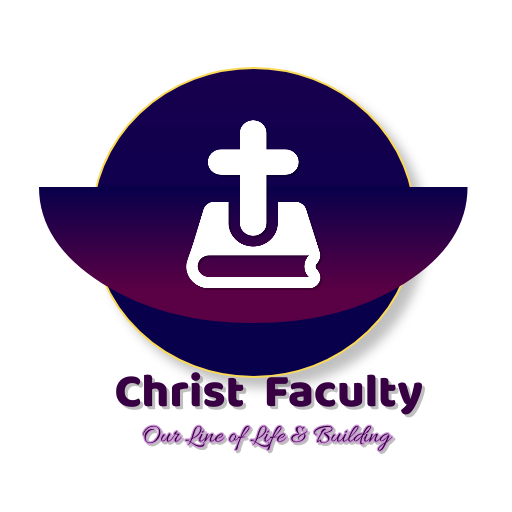Course Title: Homiletics and Preaching
Course Description:
Homiletics and Preaching is a course designed to equip students with the foundational principles and practical skills necessary for effective sermon preparation and delivery. This course explores the theological, biblical, and practical aspects of preaching, emphasizing the importance of faithfully interpreting Scripture and communicating God’s Word with clarity, relevance, and conviction. Students will engage in the study of different sermon types, the role of the Holy Spirit in preaching, and the development of their unique preaching style. Through lectures, workshops, and practical exercises, the course aims to prepare students to preach effectively in various contexts, from local church settings to broader ministry environments.
Course Overview:
- Duration: Typically one semester (12-16 weeks)
- Format: Lectures, readings, discussions, workshops, sermon preparation, and preaching labs
- Prerequisites: None, but a basic understanding of biblical studies and theology is recommended
- Target Audience: Theology students, aspiring pastors, church leaders, and anyone interested in developing preaching skills
Course Objectives:
By the end of this course, students will be able to:
- Understand the Biblical and Theological Basis of Preaching:
- Articulate the purpose and importance of preaching in the life of the Church.
- Understand the role of the preacher as a messenger of God’s Word.
- Develop Skills in Sermon Preparation:
- Apply sound hermeneutical principles to the study of Scripture for sermon preparation.
- Develop clear, well-structured sermons that faithfully convey the message of the biblical text.
- Explore Different Types of Sermons:
- Distinguish between expository, topical, and narrative preaching.
- Learn the strengths and appropriate uses of each sermon type.
- Enhance Preaching Delivery Skills:
- Develop effective communication techniques, including voice modulation, body language, and use of visual aids.
- Practice engaging with the audience, making the message relevant and accessible.
- Reflect on the Role of the Holy Spirit in Preaching:
- Understand the dependence on the Holy Spirit for power, wisdom, and discernment in preaching.
- Develop a prayerful approach to sermon preparation and delivery.
- Evaluate and Improve Personal Preaching Style:
- Receive constructive feedback on sermons and develop a plan for ongoing improvement.
- Reflect on personal strengths and areas for growth as a preacher.
Course Outline:
Week 1: Introduction to Homiletics
- Definition and purpose of homiletics
- The biblical and theological foundations of preaching
- The role of preaching in the ministry of the Church
Week 2: The Preacher’s Calling and Character
- The calling and qualifications of a preacher
- The character and spiritual life of the preacher
- The preacher’s relationship with God and the congregation
Week 3: Understanding the Audience
- Knowing your audience: cultural, generational, and situational factors
- Adapting the message to meet the needs of the audience
- Engaging different types of listeners: believers, seekers, skeptics
Week 4: The Essentials of Sermon Preparation
- Steps in sermon preparation: prayer, study, meditation, and planning
- Choosing a text: discerning the right passage or topic
- Developing a big idea or central theme for the sermon
Week 5: Hermeneutics and Exegesis in Preaching
- Principles of biblical interpretation: context, genre, language, and application
- Conducting exegesis for sermon preparation
- Avoiding common interpretative errors
Week 6: Sermon Structure and Outline
- Basic elements of a sermon: introduction, body, and conclusion
- Developing a clear and logical outline
- Transitions and flow: maintaining coherence and connection
Week 7: Types of Sermons
- Expository preaching: verse-by-verse exposition of Scripture
- Topical preaching: addressing specific themes or issues
- Narrative preaching: telling the biblical story with creativity and engagement
- Benefits and challenges of each sermon type
Week 8: Crafting Illustrations and Applications
- The role of illustrations in preaching: stories, analogies, and examples
- Developing applications that connect Scripture to everyday life
- Avoiding clichés and superficial applications
Week 9: Preaching with Passion and Clarity
- The importance of passion, conviction, and sincerity in preaching
- Techniques for clarity: simple language, repetition, and emphasis
- Overcoming common delivery challenges: monotony, speed, and nerves
Week 10: The Role of the Holy Spirit in Preaching
- Dependence on the Holy Spirit for insight, power, and impact
- Balancing preparation with spontaneity: listening to the Spirit’s leading
- Praying for the anointing and guidance of the Holy Spirit in preaching
Week 11: Sermon Delivery Techniques
- Effective use of voice: tone, volume, pace, and inflection
- Non-verbal communication: eye contact, gestures, and movement
- Using technology and visual aids to enhance the message
Week 12: Preaching in Different Contexts
- Adapting sermons for various settings: church services, small groups, evangelistic events
- Preaching in cross-cultural contexts: understanding cultural differences and sensitivities
- Special occasion preaching: weddings, funerals, holidays
Week 13: Evaluating and Improving Your Preaching
- Receiving and responding to feedback from peers and mentors
- Self-evaluation: reflecting on your preaching strengths and areas for growth
- Developing a lifelong plan for growth as a preacher
Week 14: Final Preaching Lab and Reflections
- Sermon presentations: students preach a full sermon to the class
- Peer evaluations and constructive feedback
- Final reflections: personal growth and future goals in preaching ministry
Assessment Methods:
- Reading Assignments: Engaging with classic and contemporary homiletic literature.
- Lectures & Discussions: Participation in class discussions on preaching principles and practices.
- Preaching Labs: Practicing sermon delivery in a supportive, constructive environment.
- Sermon Preparation: Developing and submitting sermon outlines and full manuscripts.
- Feedback Sessions: Receiving and giving feedback on preaching to refine skills.
- Examinations: Midterm and final exams assessing knowledge of homiletic theory and practice.
- Final Sermon: A capstone project where students prepare and preach a sermon, incorporating all learned skills.
Recommended Texts:
- “Biblical Preaching: The Development and Delivery of Expository Messages” by Haddon W. Robinson
- “Preaching and Preachers” by D. Martyn Lloyd-Jones
- “Christ-Centered Preaching: Redeeming the Expository Sermon” by Bryan Chapell
- “The Art and Craft of Biblical Preaching” edited by Haddon Robinson and Craig Brian Larson
- “Preaching: Communicating Faith in an Age of Skepticism” by Timothy Keller
This course on Homiletics and Preaching aims to prepare students to faithfully and effectively proclaim God’s Word, equipping them with the theological understanding, practical skills, and personal confidence needed to serve as effective communicators of the Gospel in various ministry settings.
Course Features
- Lecture 0
- Quiz 0
- Duration 14 weeks
- Skill level Intermediate
- Language English
- Students 150
- Certificate No
- Assessments Yes



